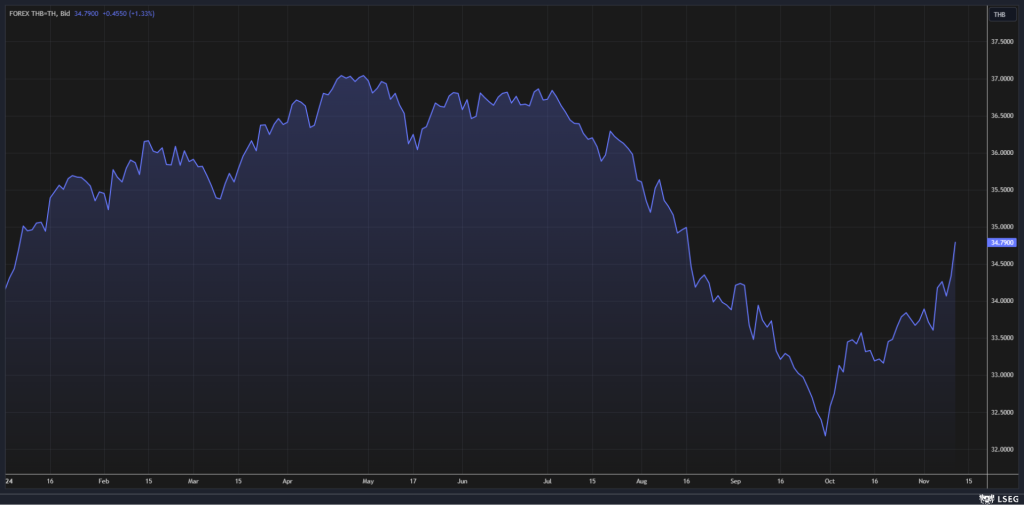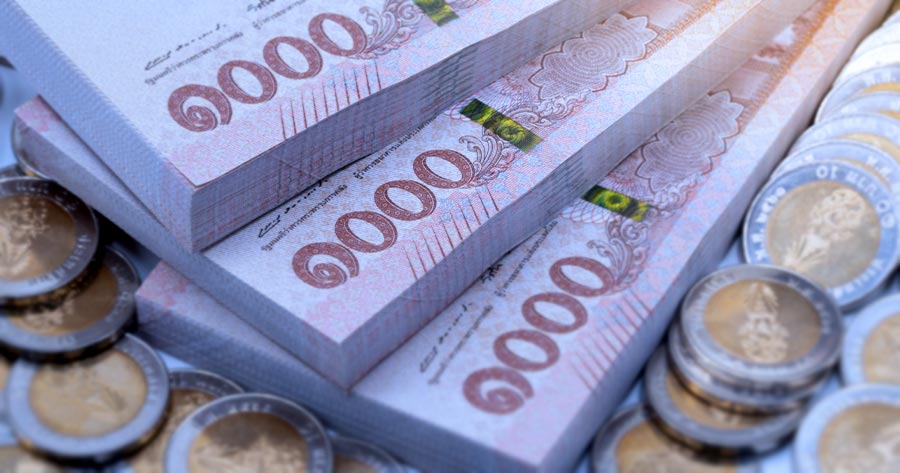Thailand’s currency, the baht, experienced a sharp drop of more than 1%, reaching THB 34.79 per dollar on Tuesday, its weakest level since August 19. This follows reports that former finance minister Kittiratt Na-Ranong, a vocal critic of the central bank’s aggressive monetary policy, would become the new chairman of the Bank of Thailand (BOT).
This is after a strong performance in Thai baht at the end of the third quarter, hitting THB 32.19 per dollar after a jumbo rate cut by the US Federal Reserve. However, the trend does not last long as the Bank of Thailand also delivered a 25 basis points rate cut in October.

As chairman, Kittiratt will have the power to select members of the Monetary Policy Committee and assess the performance of the central bank governor. However, he will not have direct authority over monetary policy decisions.
His appointment has raised concerns about the central bank’s independence due to his link to the current ruling party, Pheu Thai. This is after a year-long pressure from the government to cut interest rates.
Eugenia Victorino, head of Asia strategy at Skandinaviska Enskilda Banken, stated that as long as the central bank’s independence remains at risk, investors will likely continue favoring the long position of USD-THB.
Lloyd Chan, currency strategist at MUFG Bank in Singapore, added that Kittiratt’s appointment could signal further rate cuts next year. He also noted that Thailand’s economy, which is highly exposed to the impact of Trump’s trade tariffs, could face a “double whammy,” further weakening the baht’s outlook.
Meanwhile, the Thai baht is now the worst-performing currency in Asia, having declined more than 7% this quarter, mainly due to the government’s push for lower interest rates and growing concerns over the global economy, particularly following Trump’s election and the anticipated trade tariffs.




